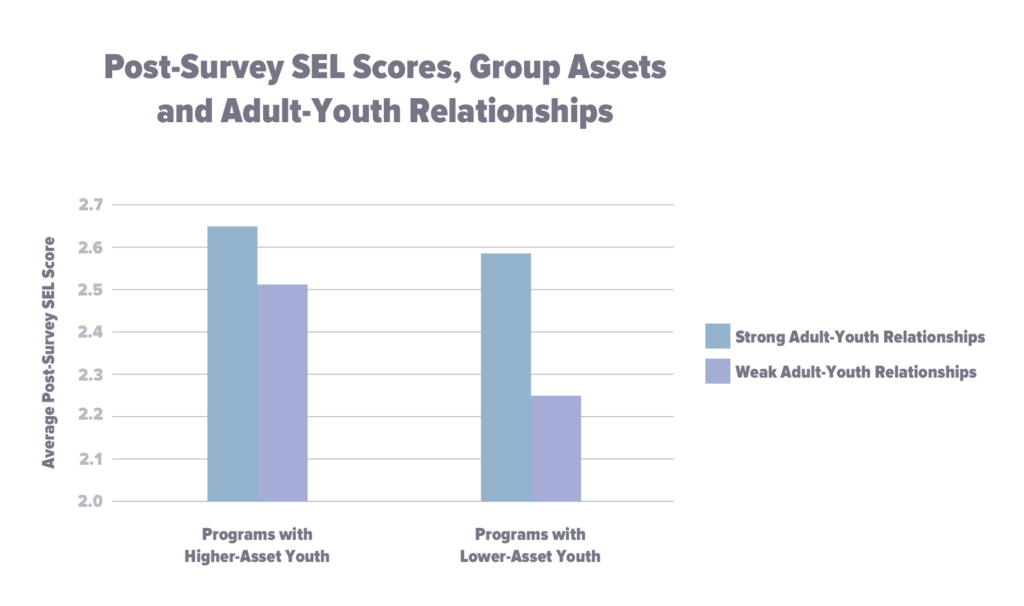Authors: Dr. Alicia Doyle Lynch and Dr. Kim Sabo Flores
Youth development practitioners understand the importance of building strong, supportive relationships with youth. They see the power of these relationships on the ground every day. Yet many practitioners don’t know that there is also a growing body of research that affirms this work — and the fact that a “key ingredient” in growing social emotional learning (SEL) is the presence of strong, supportive adult/youth relationships (Roehlkepartain et al 2017; Algorhythm 2017).1,2
While this research is vitally important, both researchers and practitioners alike understand that not all youth programs and not all youth are the same. Recently, experts in the evaluation of youth development programs have increasingly urged programs to understand not only “what” programming strategies work, but also “when” and “for whom” these strategies are most effective.3 In our latest research, Algorhythm set out to do just this: consider “when” and “for whom” strong, supportive adult/youth relationships may play a particularly salient role in bolstering SEL.
Working with Algorhythm’s Youth Development Impact Learning System (YDiLS) — an assessment, planning and evaluation tool for youth development programs that integrate social and emotional learning — we analysed data from 4,980 youth who participated in 94 programs across the US. This process revealed that strong, supportive adult/youth relationships are particularly powerful in programs that serve predominately lower asset youth (e.g., youth coming into programs with lower social and emotional skills). For example, youth in lower asset groups who experienced strong adult/youth relationships in programs:
- Scored 13% higher on the YDiLS’ SEL post-surveys (vs. youth in lower asset groups who experienced weak relationships with adults).
- Had YDiLS post-survey SEL scores that matched the post-survey SEL scores of youth from higher asset groups who experienced weak adult/youth relationships in programs.

This suggests that strong adult/youth relationships have the potential to close an important gap in SEL skills for those youth entering programs with fewer assets than their peers!
Want to learn more about practical strategies for cultivating strong relationships with youth? Register for our FREE webinar on “Building Developmental Relationships with Youth” — featuring Dr. Kent Pekel from the Search Institute — which will share five essential elements that make adult/youth relationships powerfully developmental for young people!
1Roehlkepartain, E. C., Pekel, K., Syvertsen, A. K., Sethi, J., Sullivan, T. K., & Scales, P. C. (2017). Relationships First: Creating Connections that Help Young People Thrive. Minneapolis, MN: Search Institute.
2The Art & Science of Creating Effective Youth Programs (2017). New York, NY: Algorhythm.
3Roth, J.L., & Brooks-Gunn, J. Evaluating youth development programs: Progress and Promise. Applied Developmental Science, 20(3), 188-202.
